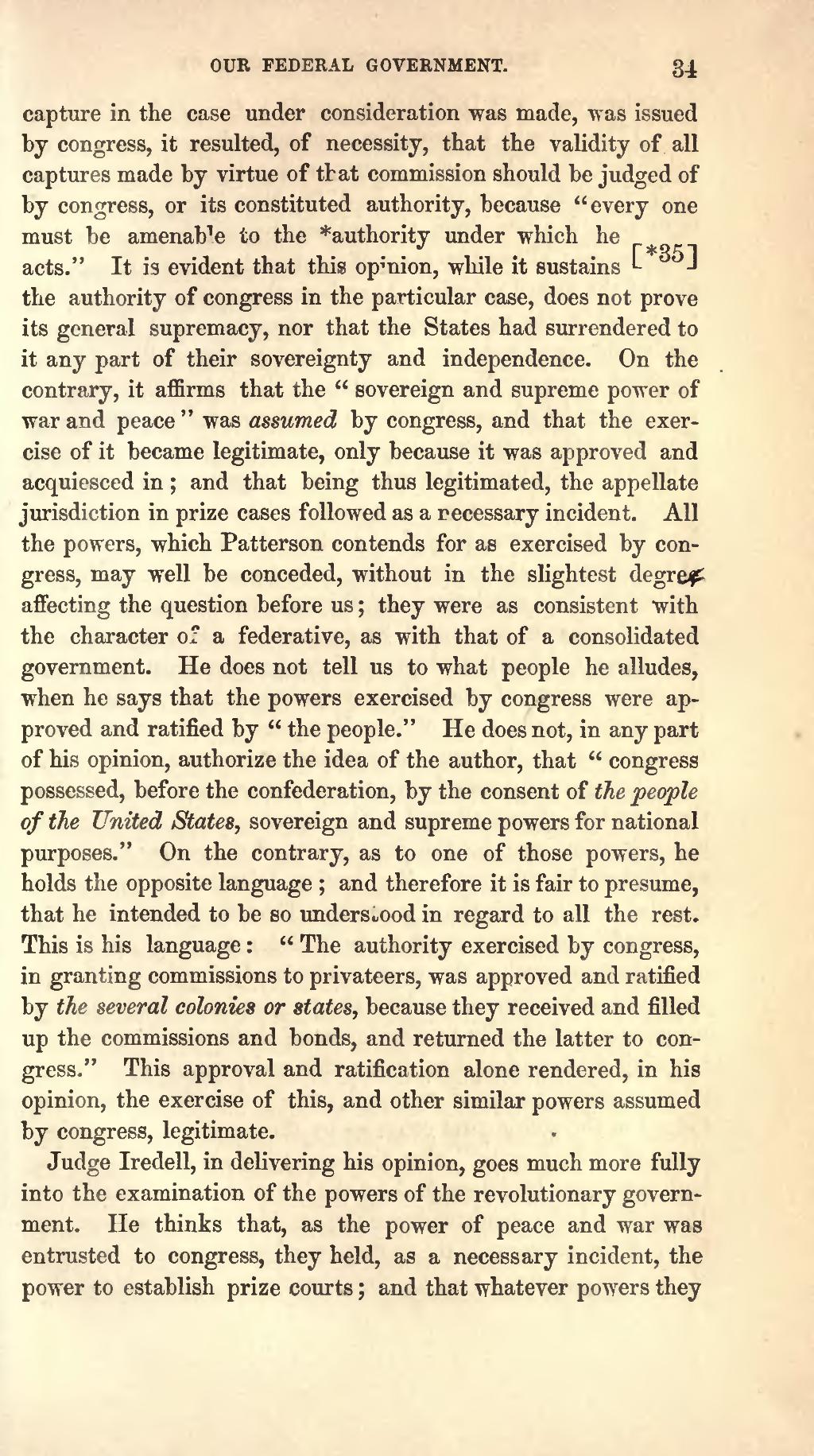capture in the case under consideration was made, was issued by congress, it resulted, of necessity, that the validity of all captures made by virtue of that commission should be judged of by congress, or its constituted authority, because "every one must be amenable to the [ *35 ]*authority under which he acts." It is evident that this opinion, while it sustains the authority of congress in the particular case, does not prove its general supremacy, nor that the States had surrendered to it any part of their sovereignty and independence. On the contrary, it affirms that the "sovereign and supreme power of war and peace" was assumed by congress, and that the exercise of it became legitimate, only because it was approved and acquiesced in; and that being thus legitimated, the appellate jurisdiction in prize cases followed as a necessary incident. All the powers, which Patterson contends for as exercised by congress, may well be conceded, without in the slightest degree affecting the question before us; they were as consistent with the character of a federative, as with that of a consolidated government. He does not tell us to what people he alludes, when he says that the powers exercised by congress were approved and ratified by "the people." He does not, in any part of his opinion, authorize the idea of the author, that "congress possessed, before the confederation, by the consent of the people of the United States, sovereign and supreme powers for national purposes." On the contrary, as to one of those powers, he holds the opposite language; and therefore it is fair to presume, that he intended to be so understood in regard to all the rest. This is his language: "The authority exercised by congress, in granting commissions to privateers, was approved and ratified by the several colonies or states, because they received and filled up the commissions and bonds, and returned the latter to congress." This approval and ratification alone rendered, in his opinion, the exercise of this, and other similar powers assumed by congress, legitimate.
Judge Iredell, in delivering his opinion, goes much more fully into the examination of the powers of the revolutionary government. He thinks that, as the power of peace and war was entrusted to congress, they held, as a necessary incident, the power to establish prize courts; and that whatever powers they

